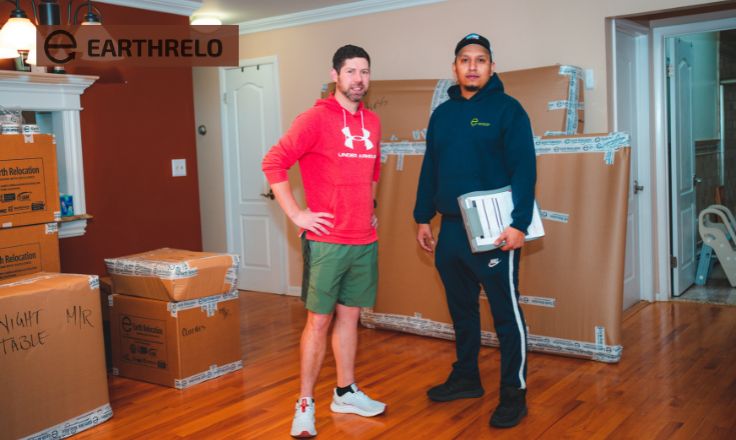- April 16, 2024
So, you’ve familiarized yourself with the steps to residency in France, booked your move with Earthrelo and applied for the relevant long-stay visa, and had your visa application approved. You’re on the ground in France, and ready to begin your new life! Here’s 7 important things to take care of right away for moving to France!
1. Validate Your Long-Stay Visa
Unless you are an EU citizen, the first step in your road to French residency will be a long-stay visa, probably your 1-year Long-Stay Visa Equivalent to a Residence Permit (visa de long séjour valant titre de séjour or VLS-TS).
This visa type serves as a residency permit for the first year of your stay (after which you will be able to apply for your Carte de Sejour or Residency Permit). However, you MUST validate it within three months of arriving in France. This step ensures that you are a legal resident in France and also allows you to leave and re-enter the country whenever you wish.
The validation process can be done online and a tax will be applied. You can see the full list of visas that need validating and also carry out the validation process here.
Note that it is not always made clear at the time of receiving your visa that it needs validating, so check the above list to be sure.
2. Open A French Bank Account
Unless you are already a French property owner, you will need to wait until you arrive in France to open your French bank account. Having a bank account is essential for everything in France; from paying your bills to taking out a mortgage.
You’ll need proof of permanent address (usually a utility bill will work) as well as various other documents. If you plan to continue earning income from your country of origin or have bills / assets that cannot be eliminated prior to your move – it’s a good idea to sign up for a foreign currency account – We like (Affiliate link OFX) to ensure the best rate of exchange anywhere in the world.
3. Get Your French Social Security Number
Permanent residents of France are legally required to sign up for France’s state healthcare system or ‘L’Assurance Maladie’ after their 3rd month in France. To join, you’ll need to apply for a social security number.
Most new arrivals will first be issued a provisional social security number, which entitles you to access the state healthcare service. Once you have received your permanent social security number, you can also apply for your Carte Vitale.
4. Get Connected: Buy a French SIM Card
Many French micro and nano – SIM cards will work with your foreign phone, and you can sign up for a phone plan online or in – store at any of France’s telecoms providers, large electronics stores or hypermarchés.
Some of France’s most popular phone networks include Orange, Free, and SFR. While you’re at it, consider a deal that includes phone, TV and internet. See our guide to setting up phone, TV, and internet in France, and once you’re connected, be sure to add France’s emergency numbers to your contact list.
5. Visit Your Local Mairie
While it’s not a legal requirement to register at your local Mairie (town hall), it can be a good idea, especially if you live outside of a major city. The Mairie can issue you with an official Certificat de Domicile and will be your first line of communication for any specific questions regarding garbage collection times, water connections, property planning permissions and neighborly disputes.
Registering with your Mairie also means you can sign up for their email list and receive details of community events, activities, and announcements.
6. Exchange Your Driving License
The good news is that individuals who hold a non – European license issued by a foreign authority can still legally drive in France for the first year of their long – stay visa. However, if you plan to stay permanently in France, you will need to exchange your license for a French one before the end of this first year.
Applications for a French license can be carried out here.
7. File Your First Tax Return
When you become resident in France, you also automatically become a tax resident, which means you will need to file a tax return. It is the legal responsibility of every French resident to file a tax return, whether or not you are liable to pay taxes or not.
Working with a Professional Foreign Tax Attorney can help and ensure that you’re remaining compliant with your origin country and your host country requirements.
Don’t forget to tell the tax authorities back in your country of origin that you have moved too. Depending on your situation and nationality, you may or may not need to file a tax return in both countries, so be sure that you understand the legal requirements.





